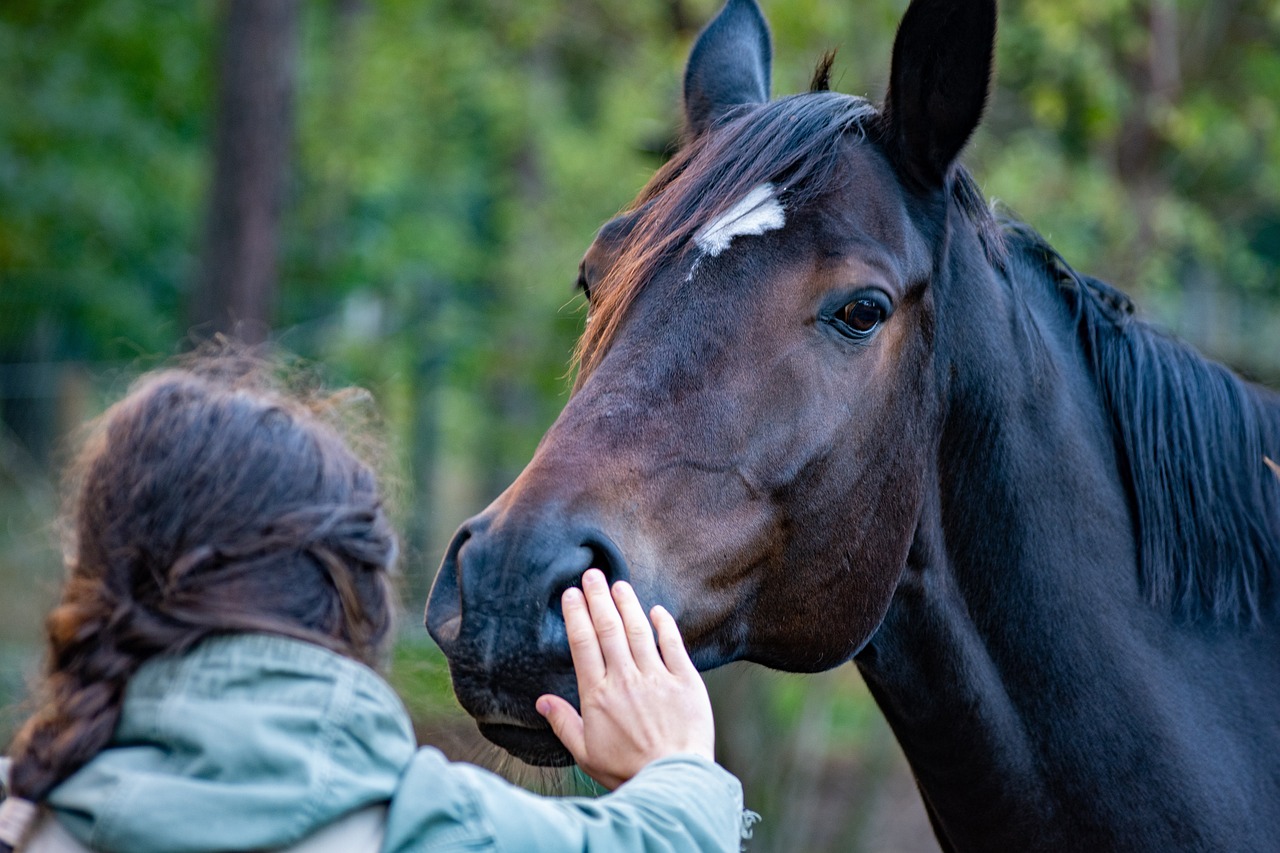Many PATH Intl. centers offer a variety of programs to Veterans such as adaptive riding, carriage driving, equine-assisted learning and psychotherapy incorporating equines. But why stop there?
If one thinks outside the box, the opportunities and options for EAS programs for Veterans are endless:
Horse Training Workshops: Engaging Veterans in horse training workshops imparts valuable skills and responsibilities. This hands-on approach not only educates but also enhances the sense of connection between Veterans and the animals. Some centers provide clinics with natural horsemanship or other professionals to help Veterans expand their knowledge once they have a basic foundation of riding skills. Or another option is to connect Veterans and mustangs or green horses so that Veterans can develop their horse training skills (www.braveheartsriding.org).
Equine Education Sessions: Educational sessions on equine behavior, anatomy and care, deepen Veterans’ understanding of horses. These sessions contribute to building a strong foundation for meaningful interactions with these animals.
Volunteering: Many Veterans entered military service with a desire to serve. As Veterans transition to civilian life, the desire to serve is still present. Encourage Veterans to help your center as a volunteer. Many Veterans can help with barn chores, maintenance or in lessons as leaders and sidewalkers.
Trail Riding Excursions: Guided trail rides through picturesque landscapes provide Veterans with an opportunity to experience the therapeutic benefits of nature combined with the joy of horseback riding. The calming effect of nature and horses can be particularly beneficial (Marchand, 2023).
Equine Art Therapy: Combining art therapy with equine activities allows Veterans to express themselves creatively. Creating artwork inspired by their interactions with horses becomes both a therapeutic outlet and a means of self-discovery (Morrissey, 2013).
Equine Yoga or Tai Chi Classes: Practicing yoga or tai chi near a horse pasture adds an additional layer of grounding and calming effects. The presence of horses enhances the overall mindfulness experience, contributing to both physical and mental well-being (Kane, 2021).
Equine Photography Workshops: Veterans can explore their creative side by participating in photography workshops inspired by their interactions with horses. These workshops provide a unique perspective and foster a deeper appreciation for the beauty of these animals (Cox, 2022).
Equine-Assisted Mindfulness and Meditation: Mindfulness and meditation sessions conducted in the presence of horses offer a serene and grounding experience. Horses are a calming influence that can contribute to a meditative environment that encourages relaxation and introspection (Reive, 2019).
Equine-Related Retreats: Weekend retreats or camps combining equine activities, therapeutic sessions, and socialization opportunities create a holistic experience for Veterans. These retreats offer a supportive and immersive environment for personal growth (https://equineimmersionproject.com).
In harnessing the healing nature of equine-related activities, Veterans can find avenues for physical, emotional and mental wellbeing. The combination of therapeutic interventions, recreational experiences and skill-building opportunities, creates a comprehensive approach to supporting the unique needs of Veterans as they navigate their post-military lives. By collaborating with professionals experienced in other activities, equine-assisted services can be incorporated into other activities and offer Veterans even more meaningful and impactful experiences with our equine partners.
By Shellie Kwitkowski, PATH Intl. CTRI, Driving Instructor, Mentor, PATH Intl. Equine Services for Heroes® committee member
Shellie Kwitkowski is currently pursuing her Doctor of Education in Organizational Leadership at Franklin University. Her dissertation topic is What Benefits Do Veterans Receive from Equine Assisted Services and is expected to be complete in 2024. Shellie has worked at three therapeutic riding centers in various capacities including program director.
References:
Cox, B. (2022). Using Photography to Explore Themes with Readjusting Veterans (sDoctoral dissertation).
Kane, B. (2021). Equine-imity: Stress Reduction and Emotional Self-Regulation in the Company of Horses. Dreamspark Press.
Marchand, W. R., Smith, J., Nazarenko, E., Joubert, K., Black, H., Osborne, M., … & Hoopes, K. (2023). A Pilot Replication Study of Implementing an Equine-Assisted Services Program Within a VA Residential Substance Use Disorder Treatment Program. Military Medicine, usad274.
Morrissey, P., & AT-R, L. C. P. C. (2013). Trauma finds expression through art therapy. Health Progress: Journal of the Catholic Health Association of the United States, 94(3), 44-47.
Reive, C. A. (2019). The effects of equine-assisted psychotherapy on mindfulness, self-reflection, insight, and psychological well-being in Veterans (Doctoral dissertation, Florida Atlantic University).

